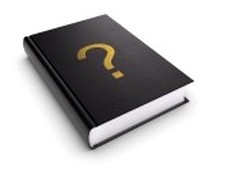
“Say to the Israelites: ‘Do not eat any of the fat of cattle, sheep or goats’” (Leviticus 7:23).
“The Lord … nourished him with … curds from the herd, and milk from the flock, with fat of lambs, rams of Bashan and goats” (Deuteronomy 32: 12-14).
Those who think they see contradictions in the Bible sometimes point to the many verses such as Leviticus 7:23 in which God expressly forbade ancient Israel to eat the fat of the animals, along with other verses, such as Deuteronomy 32:14, in which God is said to feed his people with the fat of animals, or encourages them to feed on the fat.
The answer to this seeming anomaly is a very simple one. The Hebrew word cheleb often translated “fat” in English Bibles does indeed mean the fat of animals, but it also has other meanings such as “fatness,” “richness,” “finest,” “best.” This is somewhat analogous to the English word “sweet,” which can mean sweet” as in “sugary” or “sweet” as in “pleasant” (for example, “sweet music” or a “sweet disposition”).
When we understand this broader meaning of the word cheleb, the meaning of Deuteronomy 32:12-14 becomes clear when we look at the verse in context:
“The Lord … nourished him with …curds from the herd, and milk from the flock, with fat [or “the best”] of lambs, rams of Bashan and goats, with the very finest of the wheat — and you drank foaming wine made from the blood of the grape.”
Notice three things. First, when we understand the “fat” of the lambs, rams and goats to mean the “best” or “finest” of these animals, there is no contradiction with Leviticus 7:23 or similar verses. Second, note the expression “the very finest of the wheat” that appears in this verse. The word “finest” is actually the same Hebrew worb cheleb – “fat” – but the text obviously doesn’t make sense if it is translated “fat,” so translators opt for the word “finest” or something similar. But the context shows clearly that cheleb should be translated “finest” in both cases – the finest of the lambs and the finest of the wheat.
Finally, notice the end of the verse speaks of the Israelites drinking wine made from the “blood” of the grape. Leviticus 3:17 clearly forbids the drinking or eating of blood: “This is a lasting ordinance for the generations to come, wherever you live: You must not eat any fat or any blood.” So in actuality, consumption of both fat and blood was forbidden in the laws given Israel, and the words found in Deuteronomy 32, that God gave Israel the “fat” of the animals and crops and the “blood” of the grape, are clearly symbolic and not literal.
This is the case in scriptures such as Genesis 45:18, Isaiah 55:2 and others which talk of eating the “fat of the land.” Those who claim contradiction between such verses and the clear prohibition of actual fat and blood are simply not understanding the language or the context of the verses in question.
 RSS Feed
RSS Feed
